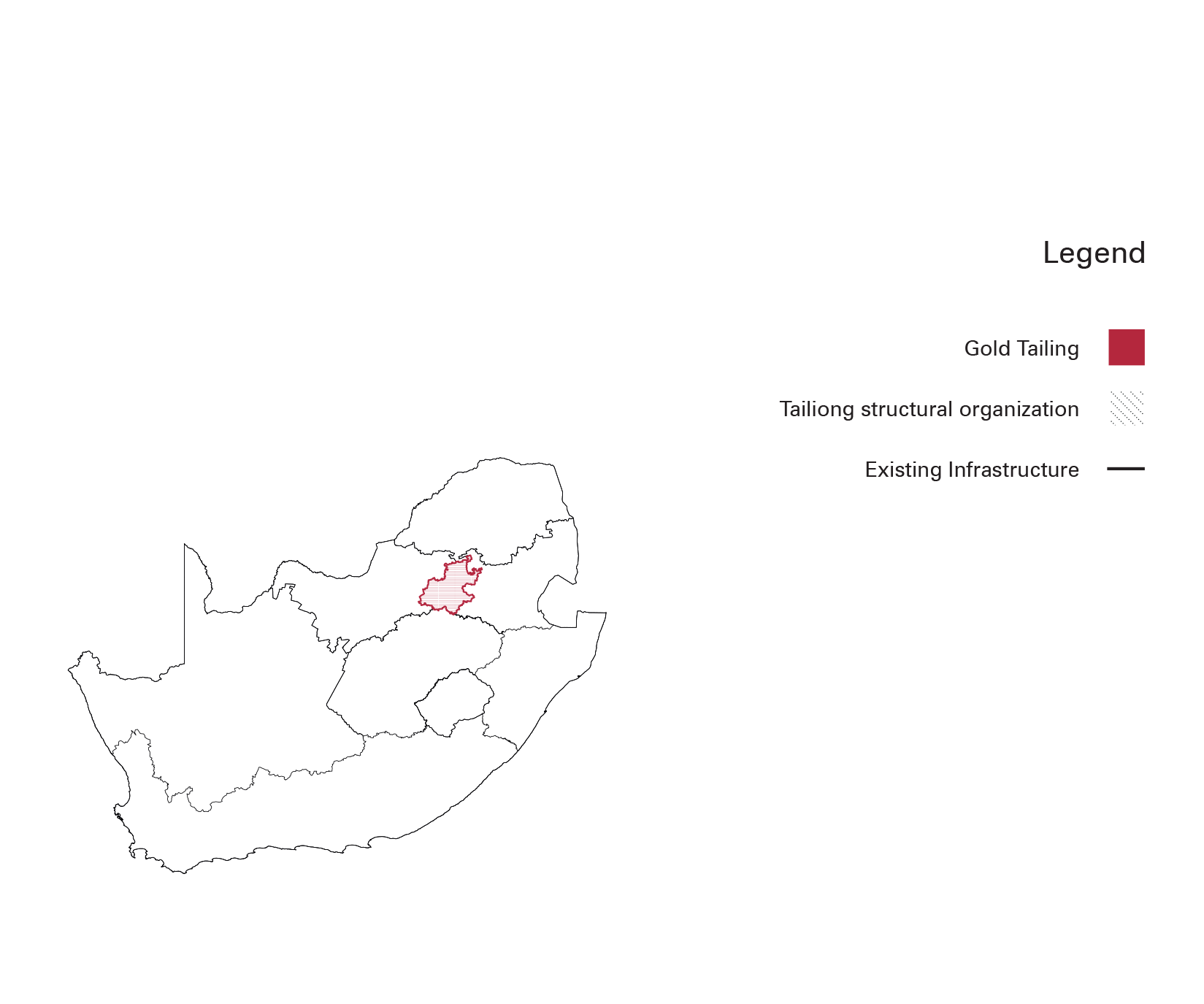Tailing Urbanism

Territories altered by men, justified by production, extraction, or infrastructure produce permanent alterations to the land. Johannesburg has more than 200 tailings that struggle to appropriate and embrace as a cultural landscape. The project will develop potential tourism facilities to revitalize these territories; conservation, rehabilitation, and post-valuation of mining tailings as a strategy to restore the surroundings. An existing gold tailing will be the starting point for the design of a hotel that will use the waste and void to create the architecture.

Tailing Urbanism
Gauteng+
Territories altered by men, justified by production, extraction, or infrastructure produce permanent alterations to the land. In 1886, gold mining was introduced to South Africa. Gauteng mining legacy has left the city with more than 200 tailings that struggle to appropriate and embrace as a cultural landscape.
Gauteng is the smallest of the nine provinces in South Africa, nevertheless has the densest population. By 2050, Johannesburg expects to grow 3.5M in population. Taking account the change in demographics, this contribution deals with the urban mining legacy by re-purposing the function of a tailing as potential infrastructure to shape the future urban environment.


Exploring Urban Futures
Mooifontein
The Main Reef Road with its man made hills divide the northern and south territory of Johannesburg. Besides the opportunity of transport infrastructure, the program includes housing and services connecting the existing neighborhoods developed around the tailings.
The existing gold tailings near the Riverlea and Diepmeadow neighborhoods is the selected site for a prototype that will use waste and void to create architecture. Remediation, conservation, and post-valuation of mining tailings are the strategies used to restore the surroundings.
The new landscape in the making will determine the guidelines of the new urban territory.


